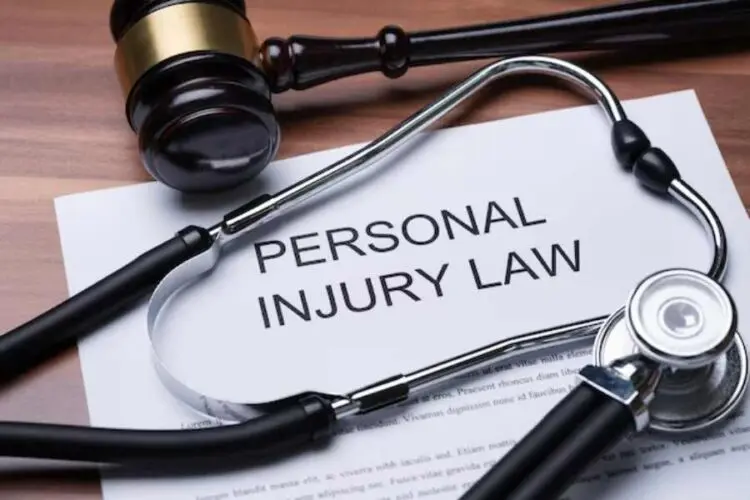Personal injury law has undergone significant transformations over the years. Steve Mehr, co-founder of Sweet James Accident Attorneys, recognizes that the field has continually evolved in response to new challenges, legal precedents, technological advancements and shifting client expectations. What was once a legal system that heavily favored corporations and insurers has gradually transitioned into a more victim-centered approach, prioritizing fairness and accessibility.
Early legal frameworks placed considerable burdens on accident victims, requiring them to meet stringent proof requirements while facing powerful opposition from insurance companies and liable parties. Over time, legislative reforms and court rulings have reshaped personal injury law to ensure that victims have a fair chance at obtaining justice. Today, the legal landscape emphasizes accountability, consumer rights and comprehensive compensation, allowing victims to recover not just economic damages but also pain and suffering, emotional distress and long-term care expenses.
The Role of Legal Reforms in Shaping Personal Injury Law
One of the most notable shifts in personal injury law has been the adoption of more plaintiff-friendly policies. In the past, contributory negligence laws barred victims from recovering compensation if they were found even slightly at fault for an accident. Over time, most states transitioned to comparative negligence systems, which allow victims to recover damages proportionate to their level of fault. This shift has been crucial in providing accident victims with fair legal recourse.
Additionally, laws addressing medical malpractice, workers’ compensation and product liability have evolved to better protect individuals. Regulatory agencies now enforce stricter safety standards, and legal professionals have more tools at their disposal to establish liability in complex cases. These legal advancements have paved the way for firms to implement aggressive litigation strategies that maximize client compensation.
How Technology is Revolutionizing Personal Injury Law
Technology is reshaping the legal industry, providing law firms with innovative tools to enhance efficiency and improve client experiences. As part of this transformation, Steve Mehr mentions, “We are thrilled to expand the Sweet James name to Atlanta, a city we are proud to serve. With Jennifer Gore leading the team as Managing Partner, we know that clients in Atlanta will receive the same exceptional representation and care that Sweet James is known for in the areas we serve.”
This dedication to technological advancement empowers firms to offer more streamlined and effective legal support while maintaining a strong client-centered approach. The implementation of digital case management systems, AI-driven legal research and virtual consultations has revolutionized the handling of personal injury cases, making legal representation more efficient and accessible to accident victims.
For example, accident reconstruction software enables attorneys to present compelling visual simulations in court, illustrating the sequence of events leading to an accident. Similarly, electronic medical records and wearable health technology provide real-time insights into a victim’s recovery process, strengthening claims for long-term medical expenses and pain and suffering damages.
Many personal injury law firms are at the forefront of these technological advancements. By utilizing cutting-edge tools, they can build stronger cases, expedite legal proceedings and provide clients with real-time updates on case progress. This commitment to technological innovation is redefining efficiency in personal injury litigation.
The Rise of Client-Centered Legal Representation
Personal injury law has shifted away from rigid, transactional legal services to a more client-focused approach. Law firms now recognize that accident victims require not only legal representation but also emotional support, guidance and transparency throughout the legal process.
The law firm exemplifies this shift by prioritizing client communication, offering 24/7 support and tailoring legal strategies to individual circumstances. Rather than treating cases as mere numbers, firms take a personalized approach, ensuring that clients understand their rights, the legal steps involved and what to expect at every stage of the process.
Furthermore, contingency fee structures have made legal services more accessible. Many personal injury firms operate on a no-win, no-fee basis, removing financial barriers that might otherwise prevent victims from seeking legal assistance. This approach has helped level the playing field, allowing individuals from all backgrounds to obtain high-quality representation.
The Impact of Aggressive Legal Advocacy
As personal injury law continues to evolve, aggressive advocacy has become a defining characteristic of successful firms. Insurance companies have historically attempted to minimize payouts, often offering settlements that fail to cover the full extent of a victim’s losses. To counteract these tactics, law firms now employ negotiation specialists, litigation experts and trial attorneys who are prepared to take cases to court if necessary.
The law firm has gained a reputation for its unwavering dedication to fighting for maximum compensation. By assembling a team of experienced attorneys and leveraging top-tier expert witnesses, the firm ensures that clients receive fair settlements and, when required, strong courtroom representation. This approach has set a new benchmark for personal injury advocacy, demonstrating that victims should never settle for less than what they deserve.
The Future of Personal Injury Law
Looking ahead, the evolution of personal injury law is expected to continue, driven by advancements in technology, legislative updates and changing societal attitudes toward justice and compensation. Some anticipated developments include:
Greater Use of AI in Legal Analysis – Predictive analytics will further refine case assessments and improve legal strategy planning.
Expanded Consumer Protections – Lawmakers will likely introduce stricter regulations on corporate negligence, product safety and employer liability.
Increased Virtual Legal Services – Remote consultations and digital court proceedings will make legal assistance even more accessible.
Law firms will play a crucial role in shaping these future advancements, continuing to push for stronger victim protection and more streamlined legal processes. By staying ahead of industry trends and maintaining a steadfast commitment to client advocacy, they are setting new industry standards and ensuring that accident victims receive the justice they deserve.
Personal injury law has come a long way from its early days, evolving into a more victim-centered and technologically advanced field. Firms are at the forefront of this transformation, utilizing cutting-edge legal strategies, prioritizing client advocacy and challenging traditional norms in the industry. Through legal reforms, technological advancements and a client-first approach, law firms are redefining personal injury litigation. As the legal landscape continues to evolve, these firms will remain instrumental in ensuring that accident victims have access to the resources, representation and compensation they need to rebuild their lives.






